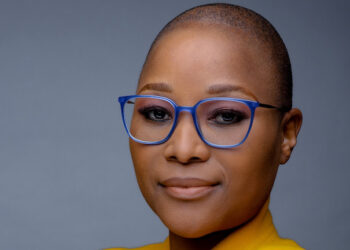The Tower of Babel grew a foot taller yesterday. At the top of the tower stands Jacob Zuma’s younger brother, Michael. The younger Zuma sloppily admitted to negotiating a contract for Thabo Ntshiqa, honcho of Khumbula Property Services. Like a half-baked court scene from Boston Legal or Judge Judy, the admission was a thing of beauty for some.
Only without a pushy lawyer and a dazed jury. Cheap.
“So you put in a good word with the Free State premier in order to get a contract, is that right?” asks John Robbie. Michael’s response to the question is slightly inaudible and disjointed. “Yah, some would say it is that one,” he mutters back.
At this point, it is clear that John Robbie has an unfair advantage over his interlocutor. John Robbie’s ability to ask four leading questions lands Michael in a tight corner. He is unable to wiggle himself out of it. Like many South Africans, English is not his home language.
The burlesque carries on.
“And in return you were going to get cash and you were going to get the homestead built for you by the company, is that right?” asks Robbie.
“Yes, they made it for me. They never give me cash on the hand, but they made it for me,” a flustered Zuma replies.
This is not skilful cross-examining by John Robbie, nor is it top class journalism. Michael Zuma has a limited understanding of English; his grasp of the language is basic. He is an easy target as he is unable proffer a wooly defence or spin, like his brother’s spokesperson often does.
As a shrewd public commentator, Robbie should’ve been discerning enough to realise that his interlocutor was not well versed in that waggish language called English. If public broadcasters exist to edify and not confirm biases and deeply held views on issues, Robbie failed to convince us. Put differently, if Robbie’s sole intention was to ‘get to the bottom of this’, he would’ve handled his encounter with the younger Zuma differently. Robbie could have been less crafty; he could’ve given the younger Zuma more opportunities to make his case without being led. There’s always room for rigour but asking an inarticulate man leading questions does not count.
The final straw: “But you used your name, you used your contacts to help them get the contract. Even though the company had a bad track record?”
Michael Zuma’s penultimate response is something for the books: “[Dramatic pause] Hmm, pardon?”
Robbie is not alone, on Sunday evening; the popular investigative programme, Carte Blanche also gave Michael Zuma a call. A case of ‘same script, just a different interrogator’.
Broadcasting regulations are sheepishly silent on how language can be used as a tool to marginalise and even obliquely discriminate subjects in the media. My favourite South Africanism is that ol’ trodden chestnut about ‘unity in diversity’, 11 official languages and stuff. This South Africanism never quite prevails in South Africa’s mainstream media.
Public commentary and news only counts when it is offered in English. No room for funny-sounding natives who aren’t articulate in the language of the Queen. Michael Zuma should not have agreed to field questions in a language that he is not entirely comfortable in, but he did. He opened himself to effortless interrogation as an easy target, even though his admission sounds true.
A far more articulate and wealthier dude was caught invoking the myth of the boogeyman this weekend. “If you don’t vote, the Boers will come back to power.” None of the media houses that reported the story cared to tell us the language Cyril Ramaphosa used when he made this statement. The ANC deputy president was addressing the residents of Seshego, Julius Malema’s Limpopo neighborhood. An educated guess would have me think that he was probably speaking Sepedi.
The term ‘Boer(s)’ has multiple meanings. ‘Maburu’ or amabhulu’ is what racist white South Africans were referred to during apartheid (it is used still even today). More significantly, the term ‘maburu’ or ‘amabhulu’ is a synecdoche. A literary a device used to describe the system of apartheid as a whole, complete with its actors.
Again, South African media was lost in the nuance of the word. Solidarity and the FF+ are already crying racism, their daily struggle. If we are to build a lively and broad-minded democracy, public discourse will have to rid itself of prejudices. Otherwise, we risk the chance of selling our public discourse to the highest bidder, the dominant –ism. Classism, sexism, ageism and racism still contribute significantly to how views are interpreted and analysed in South Africa.
I shudder to think what would’ve happened had the popular Lesedi FM jockey, Thuso Motaung, asked the Construction Cartel boys fiery questions in Sesotho. I can already see them wince as they try to spin something in Sesotho, while inaudibly humming Nkalakatha.
Thankfully, they were spared the disgrace. In John Robbie’s final words, “obviously there’s a language barrier”.
Sibusiso Tshabalala is a 20-something year old dude who tries to read, write, eat and sleep – at the same time. He has never won the lottery and has never read any of Enid Blyton’s books. Sibusiso tweets at @sbutshabs.














